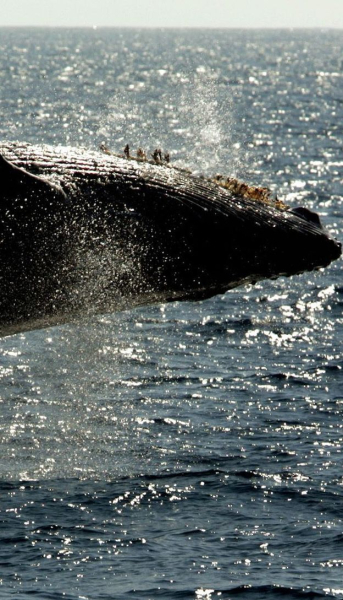
The reserve will not only protect animals, but also help in the fight against the climate crisis.
The Caribbean island of Dominica is creating the world's first marine protected area for one of the largest animals on Earth, the critically endangered sperm whale.
The Guardian writes about this:
About 800 square kilometers of royal blue waters on the island nation's western side that serve as key foraging and feeding grounds will be designated as a nature reserve, the country's government announced on Monday.
“We want to make sure these majestic and highly intelligent animals are protected from harm and continue to keep our waters and our climate healthy,” Dominica Prime Minister Roosevelt Skerritt said in a statement.
Scientists say the reserve will not only protect animals, but will help combat the climate crisis.
Sperm whales defecate near the surface as they shut down non-vital functions when they dive to depths of up to 3,000 metres. As a result, nutrient-rich feces remain along the ocean surface and create plankton blooms that capture carbon dioxide in the atmosphere and drag it to the bottom of the dying ocean.
Sperm whales in Dominica are believed to poop more than whales elsewhere, said Shane Gero, a whale biologist and founder of the Dominica Sperm Whale Project, a research program focused on sperm whales in the eastern Caribbean.
“In some aspects, sperm whales are fighting climate change on our behalf,” Gero said in an interview.
Scientists estimate there are fewer than 500 sperm whales in the waters surrounding Dominica, part of a population that moves along the Lesser Antilles island chain, swimming south to St. Vincent and north to Guadeloupe. Unlike sperm whales in other parts of the world, those living in the eastern Caribbean do not travel very far, Gero said.
He noted that sperm whales are a matrilineal society, with young males leaving and changing oceans at some point in their lives. As a result, protecting the species is key, especially if few new ones are born, he said.
“One confused baby can mean the end of a family,” he said.
Note that sperm whales can give birth to one calf every five to seven years.
Earlier we wrote that in the cleanest Kiev Lake Vedro, ecologists discovered a rare Red Book plant – Aldrovanda vesica. It has no roots and feeds on insects.
Related topics:
More news

